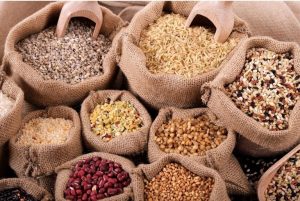FoodShare – Power Outages
https://www.wisn.com/article/disaster-program-offers-food-replacement-after-power-outages/46414778
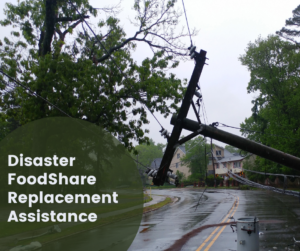 English:
English:
- Severe weather in the area has led to loss of power. Per the FoodShare handbook, a loss of power for four (4) hours or more can qualify as a household misfortune.
- Current FoodShare members who lose food purchased with FoodShare benefits due to a the power outage can request the replacement benefits from the State through a form.
- The form MUST BE SUBMITTED WITHIN 10 DAYS OF LOSS!
- Access the form here: https://www.dhs.wisconsin.gov/forms/f0/f00330.pdf
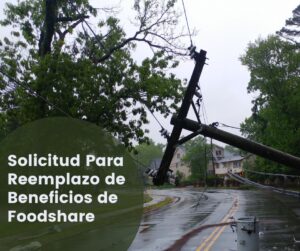 Spanish:
Spanish:
Si usted es un miembro actual de FoodShare y los alimentos que compró con los beneficios de FoodShare fueron destruidos debido a una desgracia familiar o un desastre natural, complete este formulario y envíelo junto con una prueba de que sus alimentos fueron destruidos.
El formulario completo y la prueba tienen que presentarse dentro de los 10 días posteriores a la perdida.
El Formulario: https://www.dhs.wisconsin.gov/forms/f0/f00330s.pdf
Door County FoodWIse 2023 Year-End Impact Report
RECALL ALERT – APPLESAUCE
The Wisconsin Department of Health Services (DHS) is advising consumers to continue to be aware that specific brands of applesauce containing cinnamon have been recalled by the U.S. Food and Drug Administration (FDA). Do not buy or use the recalled cinnamon applesauce puree pouches because the product may contain harmful levels of lead.
Share information on this recall with the families you serve. A flyer is attached you may want to provide families you serve.
These products are no longer for sale, but they do have a long shelf life, so it is important that everyone checks and discards these products.
The following brands of applesauce puree that contain cinnamon have been recalled:
-
WanaBana Apple Cinnamon Fruit Puree pouches
-
Schnucks cinnamon-flavored applesauce pouches
-
Schnucks applesauce variety pack
-
Weis cinnamon applesauce pouches
If you served this product as part of your program between November 2022 and November 2023, inform the families that you serve. Parents and caregivers should be encouraged to talk with their child’s health care provider about the need for a blood lead test. Lead is a toxic metal, and there is no safe level for any person. Young children, under 6 years of age, are most susceptible to the effects of lead.
More about lead and testing for lead in blood can be found at the Lead-Safe Wisconsin website. You can learn more about this recall at Investigation of Elevated Lead Levels: Cinnamon Applesauce Pouches (November 2023)|FDA.
 Hello all! My name is Mariah Broehm. I recently started with HeartCorps as a service member. I am ecstatic to be working with HeartCorps, through the UW-Extension FoodWIse, as well as with the wide range of communities we serve. For next 11 months, I’ll be serving the communities within Manitowoc, Kewaunee, and Door Counties throughout my time with HeartCorps.
Hello all! My name is Mariah Broehm. I recently started with HeartCorps as a service member. I am ecstatic to be working with HeartCorps, through the UW-Extension FoodWIse, as well as with the wide range of communities we serve. For next 11 months, I’ll be serving the communities within Manitowoc, Kewaunee, and Door Counties throughout my time with HeartCorps.
HeartCorps is working with the American Heart Association to drive health equity in rural America. Our intention is to help meet public health needs of local communities by providing needed support in local public health settings and advancing more equitable health outcomes for communities that are currently or historically underserved.
I am whole-heartedly thrilled to be serving the community I grew up in and its surrounding areas. My goal is not only to improve my health, but to also help improve the overall health of the communities I will serve. I am very appreciative of this opportunity and overjoyed to be a part of achieving health equity in Northeast Wisconsin.
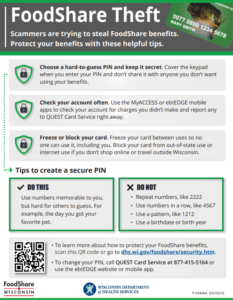
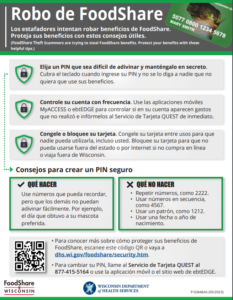 Protect Your FoodShare Benefits
Protect Your FoodShare Benefits
Feeding America Eastern Wisconsin has received multiple reports of scammers stealing FoodShare benefits this week. If you have guests reporting their benefits stolen due to card skimming, cloning, or related activities using federal funds, they can report their loss and potentially have those benefits replaced.
To report stolen benefits, you can use the Fraud Hotline or file a complaint with the Office of the Inspector General.
- Fraud Hotline: 1-877-865-3432
- Report Fraud Form: https://www.reportfraud.wisconsin.gov/rptfrd/default.aspx
- Report Public Assistance Fraud: https://www.dhs.wisconsin.gov/fraud/index.htm
Below are additional resources on keeping your FoodShare benefits safe:
- Choose a hard-to-guess PIN. Don’t use repeating numbers, like 2222, numbers in a row, like 4567, or a pattern such as 1212. Don’t use a birth date or birth year.
- Keep your PIN secret. Cover the keypad when you enter your PIN. Do not share your PIN with anyone you don’t want using your benefits to buy food for your FoodShare household.
- Check your account often. Use the MyACCESS mobile app or the ebtEDGE website or mobile app to check your account often for unauthorized charges. Change your PIN right away if you spot any suspicious charges.
- Freeze your card between uses with the ebtEDGE website or mobile app. When your card is frozen, you and anyone else will be unable to use it. You will need to unfreeze it to make purchases again.
- Block your card from being used on the internet if you don’t shop for groceries online. You also can block out-of-state transactions if you are not traveling outside of Wisconsin.
- Report lost or stolen cards immediately to QUEST Card Service at 877-415-5164.
The FOODWISE Program helps limited resource families and individuals choose healthful diets, prepare and handle food safety and become more food secure by spending their food dollars wisely. FoodWIse website
FOODWISE provides research based education on:
- Nutrition
- Physical activity
- Family meals
- Preparing foods
- Safe food handling, preparation and storage practices
- Managing food resources
- Thrifty shopping practices
Education is available for all age groups and learning abilities as well as for those who speak Spanish only.
Play it Safe – Safe Changes and Substitutions to Tested Canning Recipes
Oops… Remaking Jams and Jellies
North Central Extension food preservation newsletters:
-
Can I Use My Ceramic Cooktop Stove for Canning? July-August Newsletter
-
Vinegar with 5% Acidity: it Matters Sept-Oct 2023 newsletter
VIRTUAL NEW FOOD ACCESS MAP … Brown, Door, Kewaunee, Manitowoc Counties
The University of Wisconsin-Madison Division of Extension-Brown County released the virtual NEW Food Access Map. The objective of this map is to highlight places for households to obtain food in Brown, Door, Kewaunee and Manitowoc Counties. The map focuses on these categories: Community Gardens, Stores accepting EBT, Farmers Markets, Food Pantries, Grocery Stores, Cultural Grocery Stores and Meal Programs.
COVERING WISCONSIN … free local help to renew, apply for coverage, or find financial help with health insurance. Covering Wisconsin … more information
QUICK TIPS FOR FARMERS’ MARKET VENDORS IN WISCONSIN more info for Farmers’ Market Vendors …
UPDATE: In December 2022, a Wisconsin judge ruled that individuals may sell homemade, shelf stable foods produced in Wisconsin directly to consumers in the state. The ruling expands a prior exemption for baked goods to include candies and fudge, doughnuts, dried products, and more. Questions? Call the Licensing Specialists 608-224-4923.
 Preserving Strawberries
Preserving Strawberries
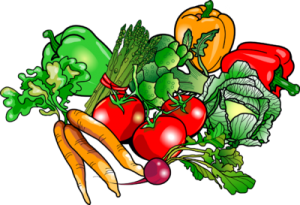 Preserve It Fresh, Preserve it Safe
Preserve It Fresh, Preserve it Safe
Whole Grains: Good for Your Heart!
by Jace Purdy, FoodWIse Nutrition Educator
You’ve probably been told to eat whole grains. But what are they? Why are they important? Where are they found in foods?
Whole grains are whole because we eat the whole thing, the whole piece of rice or corn or wheat OR we grind the whole seed into flour using all parts. Whole grain products have more fiber and important nutrients, such as B Vitamins, iron, folate, selenium, potassium, and magnesium.
Where do we find Whole Grains?
You can find whole grain versions of rice, bread, cereals, flour, and pasta on most grocery store shelves. Check the label. If the first ingredient is whole grain or “Whole Wheat Flour,” that’s good. The key word is WHOLE. Other common whole grains include brown rice, oatmeal, corn, popcorn, and quinoa.
Why do we want Whole Grains?
Whole grains are naturally higher in fiber and key vitamins and minerals. Fiber helps you feel full and satisfied, so you can maintain a healthy body weight. Diets rich in whole grains are linked to a lower risk of heart disease, diabetes, and certain cancers. Try making one simple swap: whole wheat bread instead of white, brown rice instead of white, or popcorn instead of potato chips. Enjoy whole grain foods AND the health benefits.
Recipes using Whole Grains:
- https://spendsmart.extension.iastate.edu/recipe/whole-grain-cereal-treats/
- https://spendsmart.extension.iastate.edu/recipe/chewy-granola-bars/
Resources:
- https://www.mayoclinic.org/healthy-lifestyle/nutrition-and-healthy-eating/in-depth/whole-grains/art-20047826
- https://www.myplate.gov/tip-sheet/make-half-your-grains-whole-grains
TURKEY THAWING & COOKING
USDA Modernizes the Thrifty Food Plan, Updates SNAP Benefits
FoodShare benefits are based on the Thrifty Food Plan, which represents the cost of a nutritious, practical, cost-effective diet prepared at home for a family of four, which is defined in law as an adult male and female, ages 20-50, and two children, ages 6-8 and 9-11. The Thrifty Food Plan was introduced in 1975 and updated in 1983, 1999, and 2006. Aside from the pandemic relief, there had been no increases in SNAP benefits since 2006. On August 16, 2021, the U.S. Department of Agriculture (USDA) released a re-evaluation of the Thrifty Food Plan, used to calculate Supplemental Nutrition Assistance Program (SNAP) benefits. As a result, the average SNAP benefit will increase for Fiscal Year 2022 beginning on Oct. 1, 2021. This re-evaluation concluded that the cost of food was 21% higher today, than it was in 2006, when the plan was last evaluated. As a result, the average SNAP benefit will increase by $36.24 per person, per month. This is $1.19 per day. The change goes into effect October 1, 2021. See SNAP and the Thrifty Food Plan | USDA-FNS
Emergency FoodShare Benefits for Food Replacement – Are you worried that food in your refrigerator may spoil if the power goes out? What if you lose food due to fire or flooding? Don’t take chances with food that may be spoiled. FoodShare members can request help. Current FoodShare members who lose food purchased with FoodShare benefits due to a flood, fire, or other household misfortune, can request the replacement benefits from the State of Wisconsin. FoodShare Handbook states that loss of power for 4 hours or more can qualify as a household misfortune. For more information … Emergency FoodShare Replacement Flyer.
USDA MY PLATE – RECIPES
TAST Y TUESDAYS … more information on Tasty Tuesdays
Y TUESDAYS … more information on Tasty Tuesdays
provided by Fond du Lac and Sheboygan County FoodWIse program
Also visit their facebook page for weekly updates: Extension Fond du Lac County Facebook page
COPING WITH COVID-19
FOOD PANTRIES
For more information on FOODWISE visit these links:
- FOODWISE WEBSITE
- Keep Food Safe from Bacteria
- Minimum Cooking Temperatures for Food Safety
- Safe Food Handling and Preparation
Health News from Around Wisconsin
Non-discrimination Statements
English: USDA-Nondiscrimination-Statement English
Spanish: USDA-Nondiscrimination-Statement-Spanish
